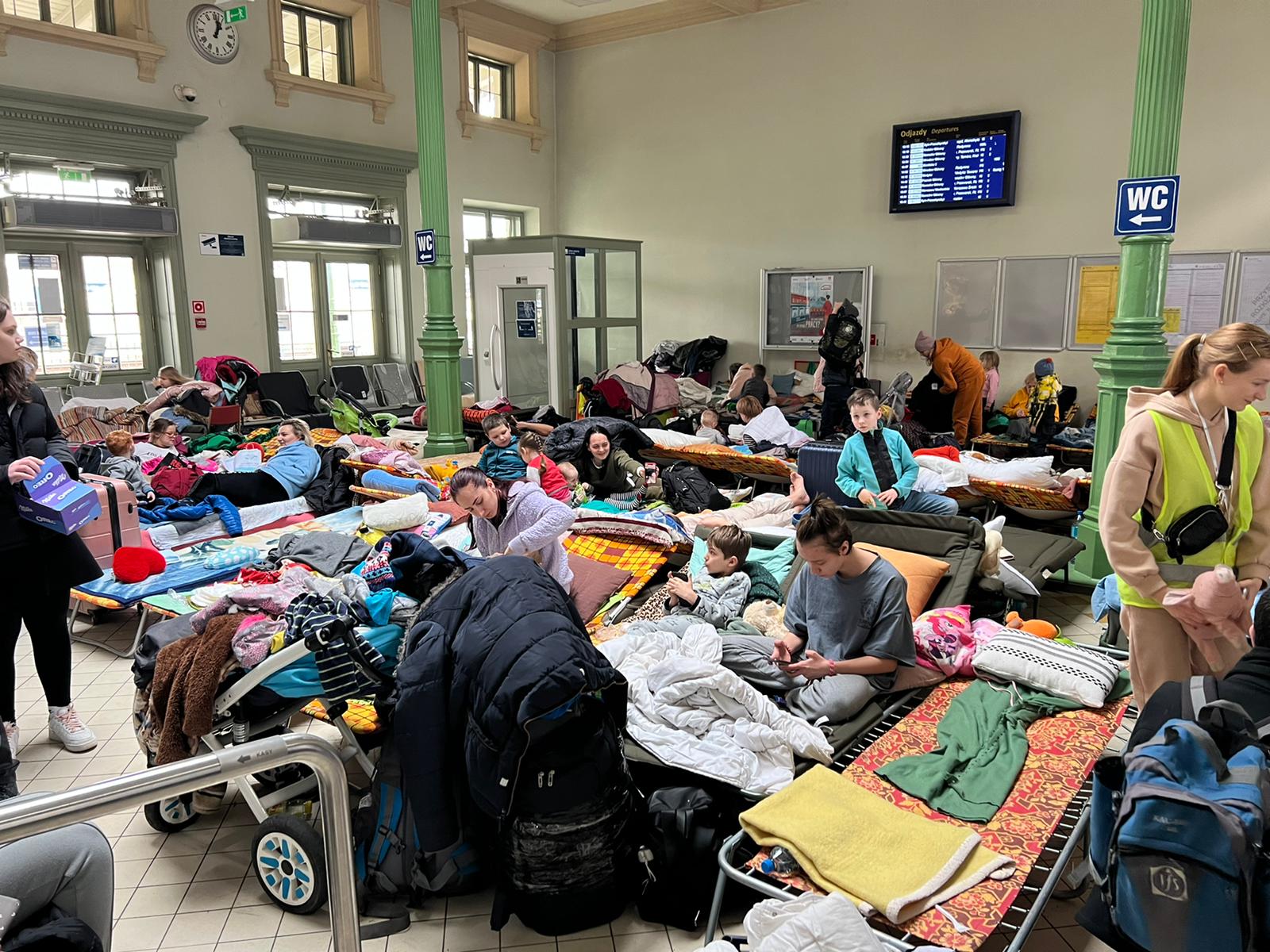Some might say there was no need for three Canadian rabbis to leave the comfort of our congregations and the safety of Canada to travel to the Polish-Ukrainian border, but we felt an obligation to provide whatever aid and support we could to the refugees fleeing war. We simply could not sit back while preaching about the responsibility to support those in need without taking steps to exercise that responsibility ourselves.
Our efforts were infinitesimal but our tradition does not measure results in quantifiable terms alone. Our faith teaches us that to make a positive difference, even a tiny difference, is of inestimable value.
So, the three of us traveled to Poland—a place where our people suffered the worst genocide in history – to witness this decade’s humanitarian crisis unfolding. We arrived at the beginning of the third week of the unprovoked Russian assault on Ukrainian sovereignty, an attack that is, consistently and indiscriminately, targeting innocent Ukrainian civilians.
At the Polish-Ukrainian border, we witnessed the flood of mostly women and children walking toward their temporary refuge. Numerous aid groups from around the world and diverse backgrounds had set up a sea of tents to provide medicine, food, clothing, and shelter to the countless refugees. Standing prominently within this sea of humanitarian aid groups were Israelis. Their tent was first in the row, and the Israeli flag is the first image refugees see as they cross to safety.
That the Israeli aid organization, Rescuers without Borders (Hatzalah Le’lo Gvulot), is front and centre is meaningful: they were the first to arrive. As Jews, as a people who have suffered such trauma in this very location, we stand proud that the Jewish State is at the front of the line, providing real, substantive aid to those in need. And the need is overwhelming.
The nearly three million refugees to date will soon be four million, five million – and more if this violent invasion does not end. While we witnessed the results of the brutality of the Putin regime and its military apparatus, we also witnessed extraordinary human compassion—Polish families opening their homes, and Polish children greeting their Ukrainian peers with toys.
The generosity of the people—the volunteers from all over the world, the supplies donated – is something to behold. It is humbling. It is inspiring. We were simultaneously witnessing the worst human beings can do to each other and the best human beings can do for each other.
Those we saw crossing the border had left beloved husbands and fathers in Ukraine to fight for their country’s very existence. The refugees carried their lives in their knapsacks, without knowing whether they would ever return. The massive nearby train station of Przemysl—once home to one of Poland’s largest Jewish communities—was filled with mothers, children, and the elderly, huddled together for warmth. As volunteers, we distributed blankets and hand warmers, walking through a fog of sadness that is impossible to convey in words.
Our journey to witness the tragedy afflicting the Ukrainian people underscored our conviction that we all must do whatever we can to help those in need. We can volunteer. We can donate – to our local Jewish Federation’s campaign, to the Ukrainian Canadian Congress, or to any group supporting Ukrainians directly. And we can advocate for the Canadian—and all Western—governments to do more both to end Putin’s atrocities and to support Ukrainian refugees. All of it is of value. All of it is vital.
The way to combat pure evil is with love, generosity, and compassion. During our visit to the Polish-Ukrainian border, we witnessed extreme pain, fear, and grief, but we also marvelled at the extraordinary capacity of human generosity. This story of resilience must be told, if only to shine a small light amidst a cloud of darkness.
Reuben Poupko is the rabbi of Congregation Beth Israel Beth Aaron, Adam Scheier is the rabbi of Congregation Shaar Hashomayim, and Mark Fishman is the rabbi of Congregation Beth Tikvah. All are based in Montreal.
